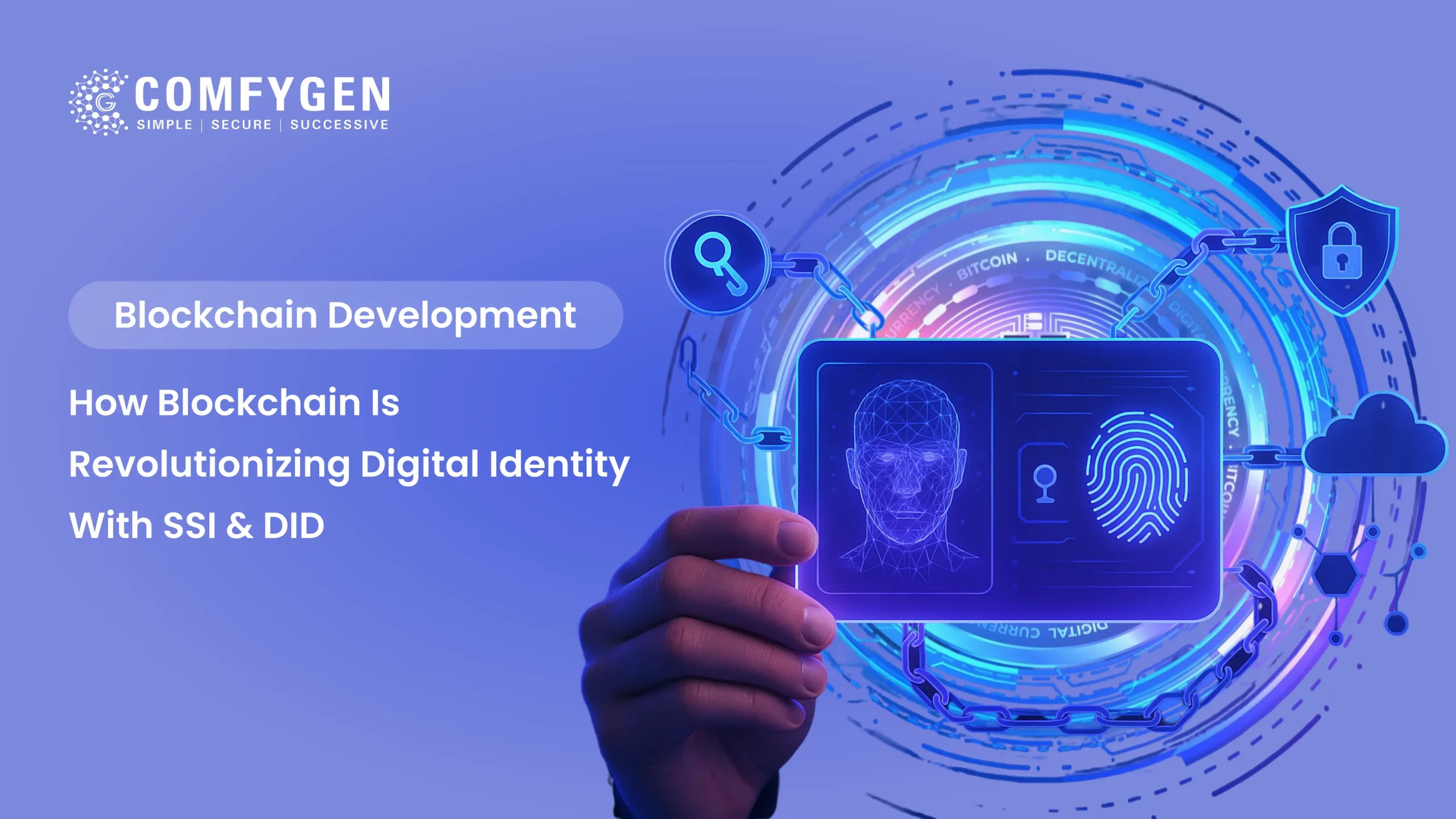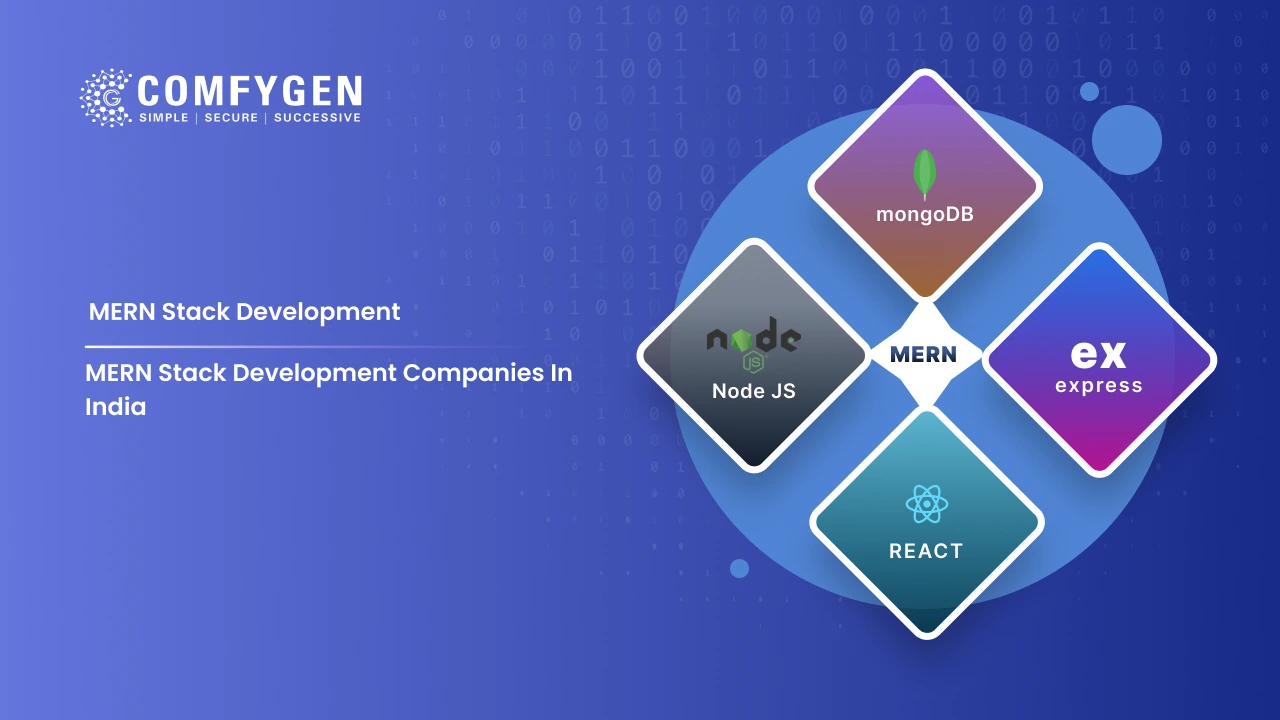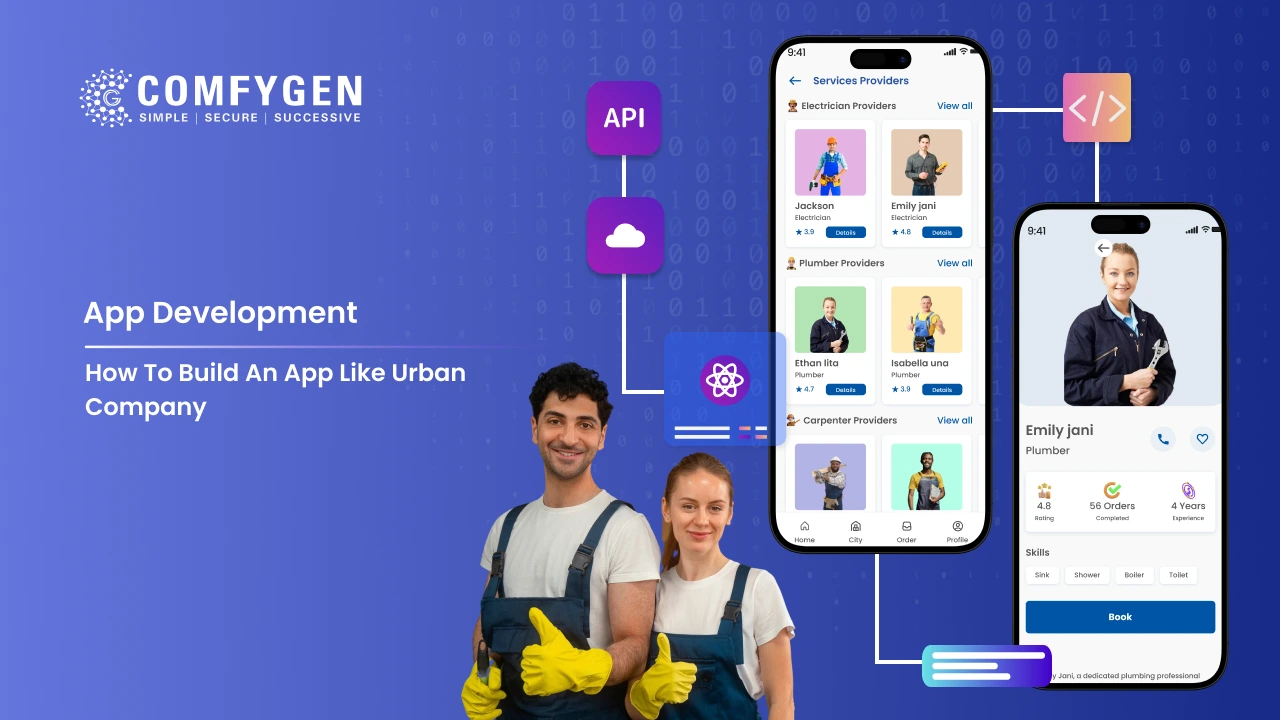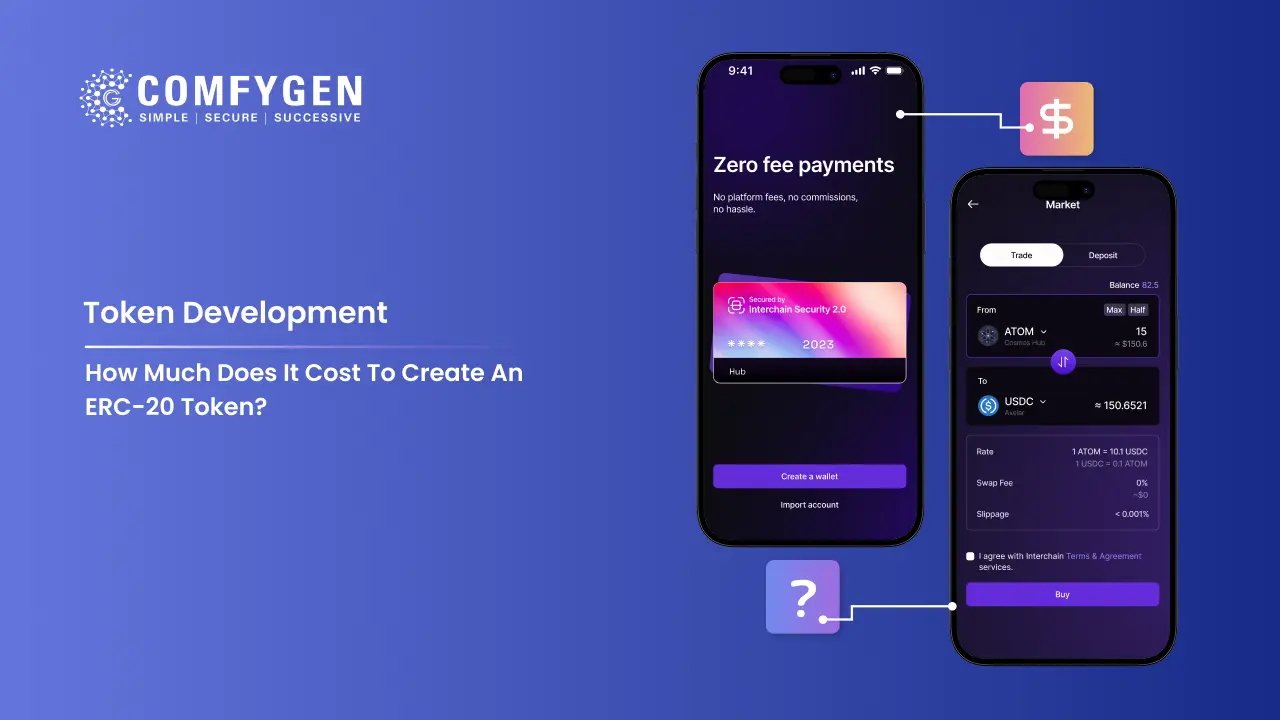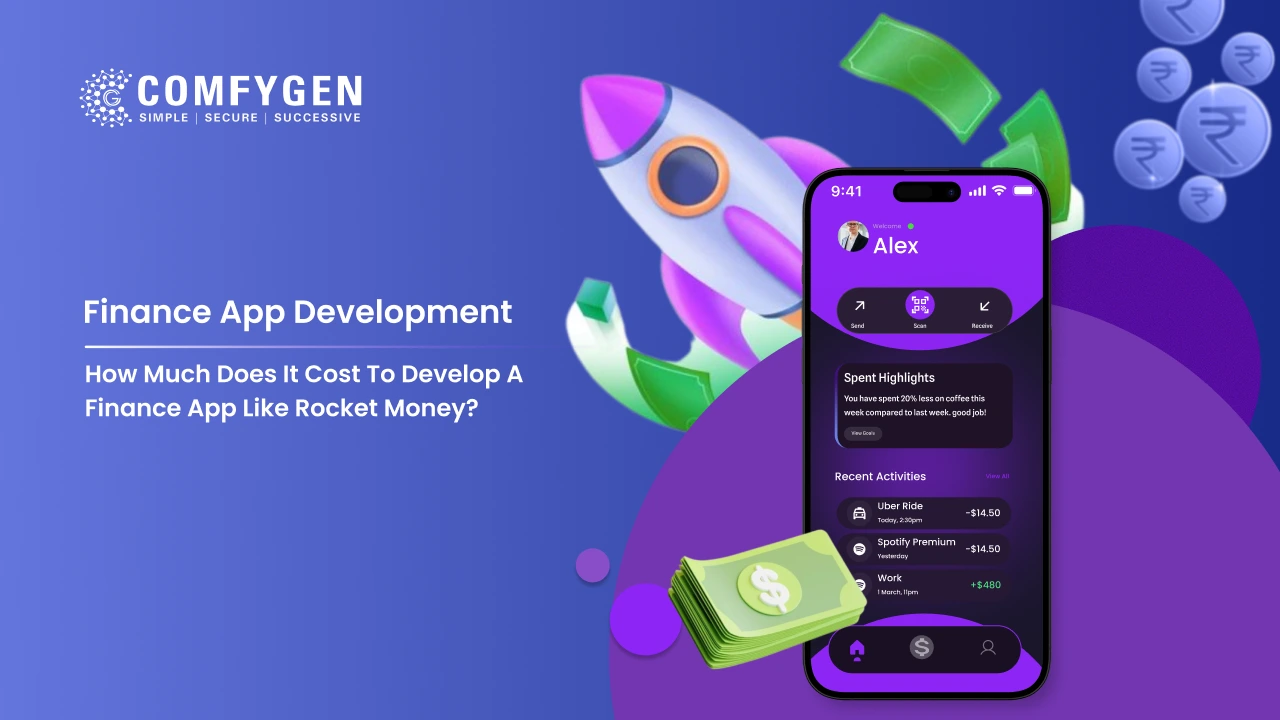As the world becomes more digital, there’s a growing need for safe and secure ways to manage identity online using blockchain digital identity. Traditional ID systems are often controlled by a single authority,It can be easily hacked, and may not protect people’s privacy. That’s why companies like Comfygen Technologies are working on advanced technologies that give users full control over their own identity through Self-Sovereign Identity (SSI) and Decentralized Identifiers (DID).
In this blog, we’ll explore how blockchain, SSI, and DID come together to improve digital identity by making it simpler, safer, and more user-focused.
What is Self‑Sovereign Identity (SSI)?
Self-sovereign identity is a model of digital identity where the individual fully controls their personal information without relying on third parties and intermediaries. Unlike traditional systems, SSI emphasizes these principles:
-
User ownership: You decide who sees your data, when, and for what purpose. With SSI you are the true owner of your identity—just like you own a physical ID or passport. Whether it’s your name, ID number, academic record, or health history, you control what to share and with whom.
-
Decentralization: There’s no single organization or central database managing your identity. Instead, your identity credentials are stored securely in digital wallets and anchored to decentralized networks like blockchain.
-
Selective disclosure: You don’t have to overshare. SSI allows you to prove just the necessary facts (like your age or qualification) without revealing all your personal information.
SSI gives users the ability to store, manage, and share credentials such as digital ID cards, academic records, medical documents, or even proof of employment—directly from their own device. This makes online interactions more private, faster, and less dependent on third-party verifications.
“For example“, instead of submitting a full ID for age verification, SSI enables you to prove you’re over 18—without showing your full name, address, or date of birth.
With SSI, companies like Comfygen Technologies empower individuals and businesses to build trust online while protecting privacy. It opens the door to a future where identity is portable, secure, and entirely in the hands of the person it belongs to.
Understanding Decentralized Identifiers (DID)
Decentralized Identifiers (DID) are a new type of digital ID that allows people, organizations, or even devices to prove their identity in a secure and private way—without relying on any central authority like a government or big tech company. These identifiers are stored on blockchain or other decentralized systems, making them tamper-proof and fully owned by the user.
Unlike traditional IDs, which are issued and controlled by outside parties (like a government issuing a driver’s license), DIDs are created and controlled by the user themselves. This gives individuals the ability to manage their identity information directly, with no need to ask permission from anyone else.
-
Self-generated: A major benefit of Decentralized Identifiers is that you can create them yourself, without needing approval or registration from a government, organization, or third-party platform. This puts you in full control of your digital identity. Once created, your DID is truly yours—no one can revoke it, block it, or take it away, giving you complete ownership and freedom.
-
Cryptographic control: Every DID is connected to a secure pair of cryptographic keys. You hold the private key, which stays secret and is used to prove that the DID belongs to you. The public key is shared with others so they can verify your identity or credentials. This system ensures that only you can control your DID, and it helps prevent fraud or unauthorized use.
-
Interoperability: One of the most powerful features of DIDs is their ability to work across various platforms and blockchains. DID formats such as
did:ethr:(used with Ethereum),did:ion:(built on Bitcoin and Microsoft’s Sidetree protocol), and many others support cross-platform compatibility. This means you can use the same identity in different apps, services, and networks—without being locked into a single ecosystem.
With DIDs, when you log in to a service or share proof of your identity, you’re not handing over personal details or documents. Instead, you’re sharing verifiable credentials that prove who you are—while keeping your private data safe.
“For example“, instead of showing your actual date of birth, a DID system can confirm that you’re over 18 without revealing your birthdate at all. This level of privacy protection is a major leap forward from traditional systems.
At Comfygen Technologies, we help businesses and governments implement secure DID frameworks that are easy to use, fully decentralized, and designed for real-world needs—ensuring a future where your identity is truly in your hands.
Want to Build A Future-Ready
Blockchain Identity System?
Contact Now
Why Blockchain is Essential for SSI and DID
Blockchain plays a key role in making Self-Sovereign Identity (SSI) and Decentralized Identifiers (DID) secure, private, and user-controlled. Its decentralized and tamper-proof nature ensures that identities are verifiable without relying on central authorities—giving users full control and trust over their digital identity.
- Decentralization : Traditional identity systems rely on central authorities like governments or corporations. This makes them vulnerable to hacks, outages, and misuse. With blockchain identity management, no single entity controls the system. It runs across a network of computers, reducing risks and giving power back to users.
- Immutability : Once information is written to a blockchain, it can’t be altered or deleted without leaving a trace. This makes it ideal for storing identity-related data, such as credential references or DID records, in a tamper-proof way.
- Transparency with privacy : While the data structure is transparent and auditable, personal data isn’t stored directly on-chain. Instead, references or hashes are used, allowing users to verify identity without exposing private information—a key principle in Self-Sovereign Identity (SSI).
- Trustless verification : Decentralized Identifiers (DID) depend on cryptographic trust rather than third-party intermediaries. Blockchain helps establish this trust by enabling peer-to-peer authentication, where users can share verified credentials without needing to “ask permission” from a central body.
- Global interoperability : Because blockchains are not tied to a country, company, or industry, SSI and DID systems can be used worldwide, supporting seamless identity use across borders, apps, and services.
In short, blockchain provides the infrastructure, security, and neutrality needed to make SSI and DID work in the real world—empowering people to control their identity like never before.
Key Use Cases of Blockchain Digital Identity
Blockchain digital identity is transforming how identity is managed across various industries by making it secure, private, and easy to verify. Here are some of the top use cases:
- Financial Services & KYC
Banks and financial platforms can issue reusable digital identity credentials to customers. Users store these verified IDs in secure wallets and share them only when needed. This approach speeds up onboarding, reduces fraud, and improves compliance with KYC/AML regulations. - Healthcare & Patient Identity
Patients have full control over their medical records and can choose what information to share with doctors or insurers. Only approved parties can access sensitive health data, improving privacy and trust in digital healthcare systems. -
Education & Credential Verification
Schools and universities can issue degrees or certificates as digital credentials stored on the blockchain. Employers and institutions can instantly verify their authenticity, reducing the risk of forged qualifications. - Government ID & Digital Passports
Governments can issue digital IDs and passports using blockchain, replacing paper documents with secure, tamper-proof alternatives. This streamlines services like voting, travel, and public benefits while enhancing security and reducing bureaucracy. -
eCommerce & Online Access
Blockchain-based identities allow users to log into websites or apps securely without passwords. It simplifies user authentication and reduces the chances of data leaks or identity theft. -
Supply Chain Participants
Individuals and organizations across supply chains can use digital IDs to prove roles, permissions, or certifications. This boosts trust, ensures compliance, and adds transparency to global operations.
These use cases show how blockchain identity solutions can simplify complex systems while protecting privacy and improving trust.
Ready to start your
blockchain identity journey?
Contact Now
Leading Blockchain Platforms Supporting SSI/DID
Several advanced blockchain platforms provide strong support for building Self-Sovereign Identity (SSI) and Decentralized Identifiers (DID) solutions. Here are some of the most widely used ones:
-
Hyperledger Indy
Hyperledger blockchain specifically built for digital identity use cases. It comes with built-in support for DIDs and verifiable credentials, making it ideal for creating decentralized ID systems. -
Ethereum
Ethereum blockchain is a popular and flexible platform that supports DID methods likedid:ethr:and offers various open-source libraries for managing verifiable credentials. It’s widely used for public identity systems. -
Sovrin Network
A public-permissioned blockchain network created specifically for SSI. It focuses on trusted identity interactions while maintaining data privacy and control for users. -
Polkadot & Cosmos
These interoperability-focused blockchains enable identity systems that work across different chains. Their modular architecture helps build flexible, scalable SSI frameworks for multi-network environments.
These platforms serve as the backbone of modern digital identity ecosystems. Each has unique strengths based on the needs of your project—whether it’s high privacy, public accessibility, or cross-chain functionality.
Challenges and Considerations
Building and scaling blockchain digital identity solution using SSI and DID requires careful planning. Here are the key challenges to consider:
Scalability
Blockchain networks must support millions of identities and credentials. To handle this, many systems use off-chain storage, cryptographic proofs, and layer-2 solutions to reduce load while keeping data secure.
Interoperability
Global standards like W3C DID and Verifiable Credentials (VC) provide structure, but implementing these consistently across various platforms, chains, and applications is still technically complex. Seamless integration is key to success.
Privacy & Compliance
Identity systems must be designed to comply with laws like GDPR, HIPAA, and CCPA. This includes protecting user data, limiting exposure, and ensuring consent-based data sharing—without sacrificing usability.
Usability
No matter how secure a system is, if it’s hard to use, people won’t adopt it. Identity wallets and verification flows must be designed for simplicity, clarity, and everyday users—not just tech experts.
Ready to Embrace the
Future of Digital Identity?
Contact Now
The Future of Digital Identity with Blockchain
The future of digital identity is evolving quickly—and blockchain is at the heart of it. Here’s what we can expect in the coming years:
Mass Adoption
Mobile-based SSI wallets may soon replace physical ID cards, allowing people to manage and use their identity securely right from their smartphones.
Web3 Integration
SSI and DIDs will be key to accessing the metaverse, DeFi platforms, and decentralized apps—giving users complete control of their identity in digital spaces.
Global Interoperability
As global standards improve, digital identity systems will work smoothly across countries, industries, and platforms—making them more useful and accessible worldwide.
AI-Powered Identity Management
Artificial Intelligence will enhance digital identity by enabling smarter fraud detection, real-time risk analysis, and personalized user experiences—all while working alongside blockchain to ensure privacy and security.
Forward-looking blockchain development companies are already shaping this future by creating secure, flexible blockchain based identity verification system, SSI and DID. These innovations will redefine how we prove and protect our identity both online and offline in the upcoming years.
A New Era of Digital Identity
As the digital world continues to grow, how we manage identity must evolve. Blockchain, (SSI), and (DID) offer a safer, more private, and user-controlled approach to digital identity. These technologies reduce fraud, cut out middlemen, and let individuals take control of their own data.
At Comfygen Technologies, we implement blockchain-based SSI and DID solutions that meet today’s compliance standards while providing a smooth, secure experience for users. We help businesses and governments build decentralized identity frameworks that are easy to use, privacy-focused, and ready for real-world needs.
Our goal is to create a future where identity is portable, protected, and truly belongs to the individual. Whether you’re part of a startup, enterprise, or public sector. This is your opportunity to explore secure, scalable, and user-first identity solutions. By empowering people and organizations with trusted digital identity tools, we’re helping build a more private, transparent, and decentralized future—where blockchain redefines how the world manages trust and privacy.
FAQs
What is Self-Sovereign Identity (SSI) in blockchain?
How does a Decentralized Identifier (DID) work?
What is the difference between SSI and traditional identity?
Why is blockchain important for digital identity?
What are the real-world uses of blockchain identity?
Can SSI and DID help with compliance like GDPR?
How do businesses benefit from blockchain-based identity?
How can you help my business implement blockchain-based digital identity?
Does Comfygen Technologies support decentralized identity for government or enterprise use cases?
Why should I choose Comfygen Technologies for SSI and DID development?

Mr. Saddam Husen, (CTO)
Mr. Saddam Husen, CTO at Comfygen, is a renowned Blockchain expert and IT consultant with extensive experience in blockchain development, crypto wallets, DeFi, ICOs, and smart contracts. Passionate about digital transformation, he helps businesses harness blockchain technology’s potential, driving innovation and enhancing IT infrastructure for global success.

